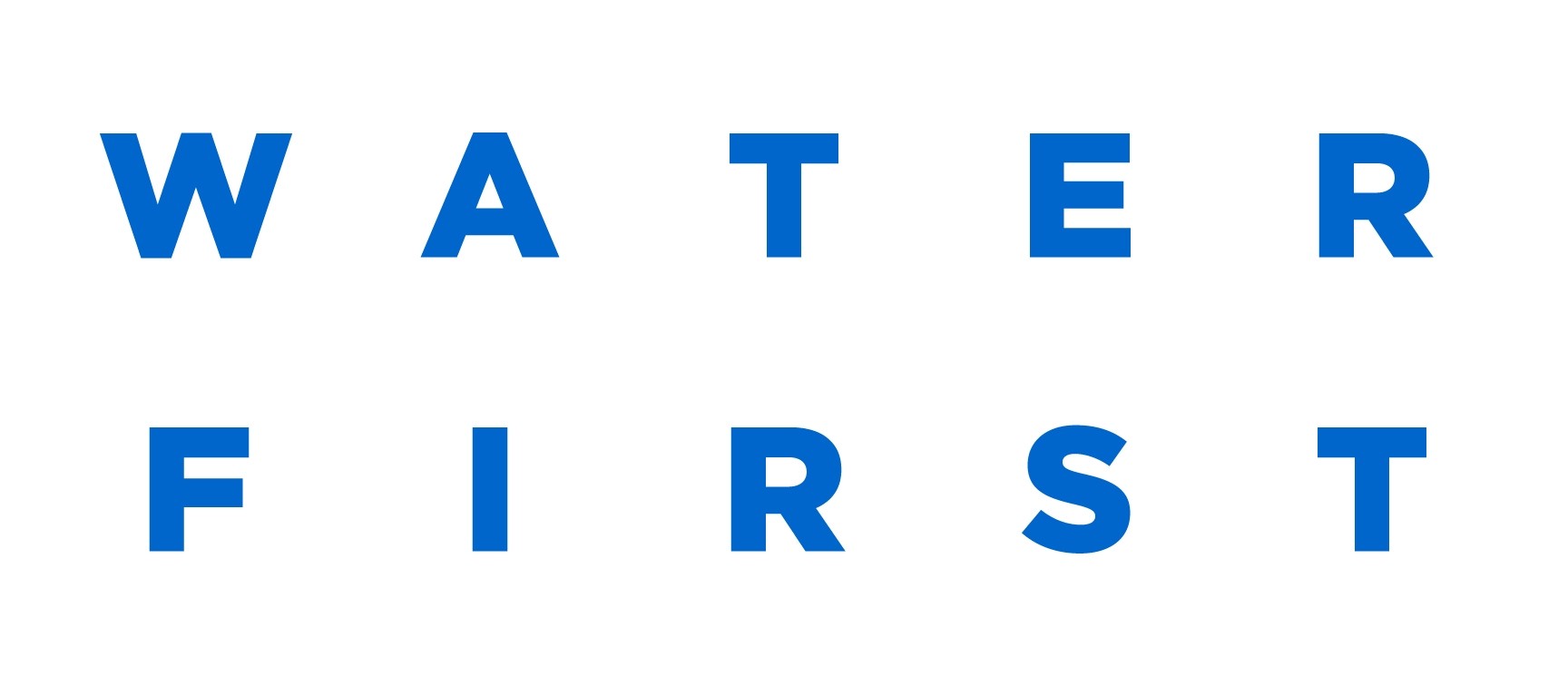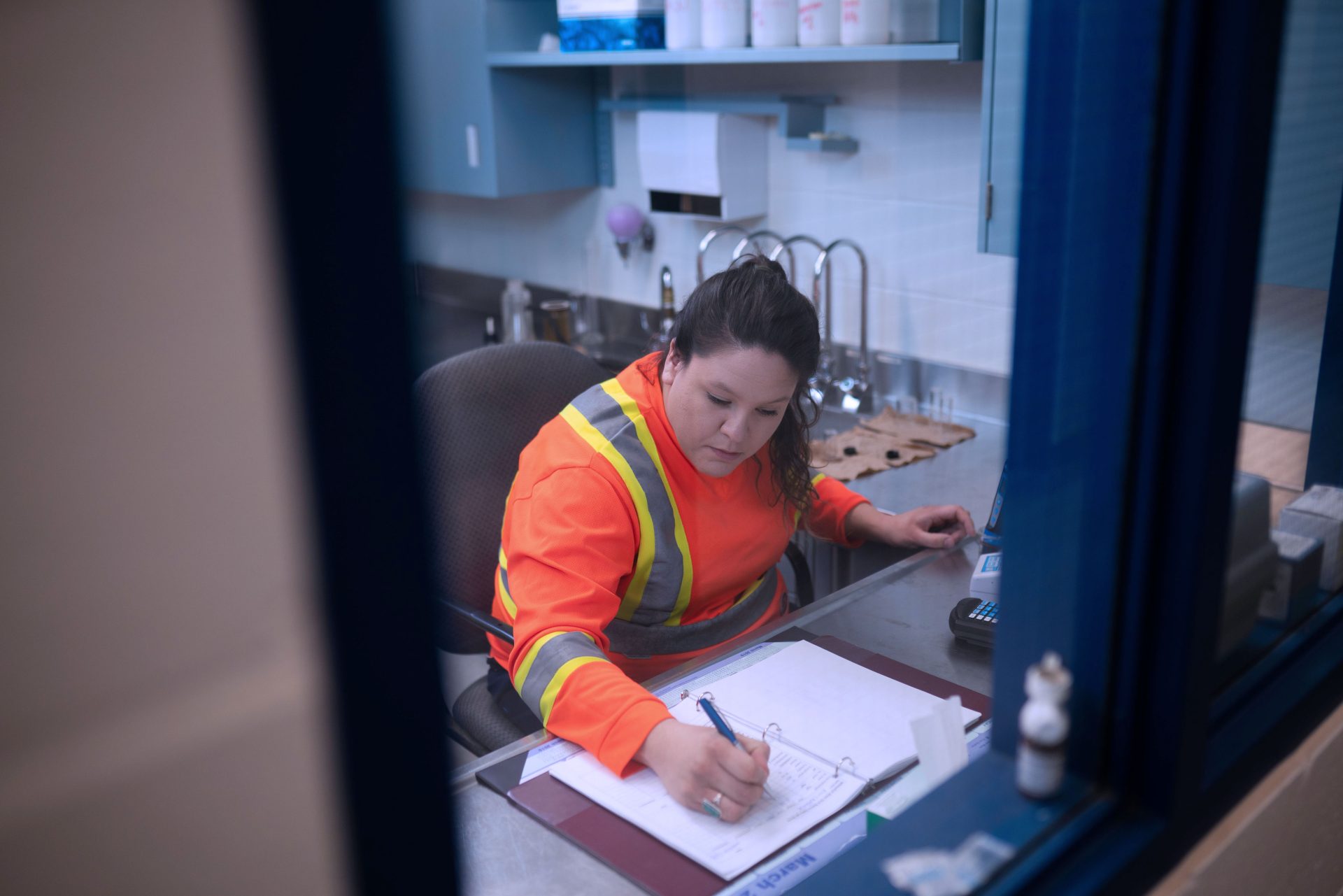Contents:
June is a special month of recognition and celebration.
With National Indigenous History Month, we have an opportunity to acknowledge the rich and diverse history of Indigenous Peoples across Canada, and to celebrate Indigenous culture, achievements, and resilience. In particular, Water First celebrates the Indigenous youth and young adults who participate in our programs, community partners, Knowledge Holders, educators, water scientists, and everyone else we engage with in support of safe water.
June is also Pride Month. Pride is an opportunity to show our respect and care for people in the Two-Spirit and LGBTQIA+ community – whether they are on our staff, in the communities we partner with, or part of the network of friends and champions who support our work.
With both National Indigenous History Month and Pride Month happening in June, we at Water First have the chance to walk alongside Indigenous communities and the 2SLGBTQIA+ community to demonstrate our support.

An ongoing learning journey
Water First works with Indigenous communities in Canada to address the water crisis through education and training. Since education is our focus, we are committed to an ongoing learning journey about Indigenous history and perspectives.
When we talk about “Indigenous history,” we’re not just talking about one homogenous history. Indigenous Peoples in Canada are typically thought of as being part of three main groups: First Nations, Métis, and Inuit. Within each of these is a huge diversity of Peoples and communities with their own unique histories, languages, cultures and traditions to celebrate and learn about.
Learning means listening to Indigenous Peoples and reflecting on what we’ve heard to understand the true histories in support of reconciliation, redress and relationship-building.
Learning about Indigenous histories can also support Indigenous individuals and communities who are working to revitalize cultural traditions that were harmed through colonization.
Over the past year, Water First has hosted various historical and cultural awareness gatherings for staff to strengthen our collective awareness. Wampum teachings, sharing circles and deepening our understanding of Indigenous mental wellness concepts led us to Building our Spirit Bundle under the direction of Elder Grey Cloud (James Carpenter). These meaningful experiences will support thoughtful and respectful approaches to all aspects of Water First’s partnerships.
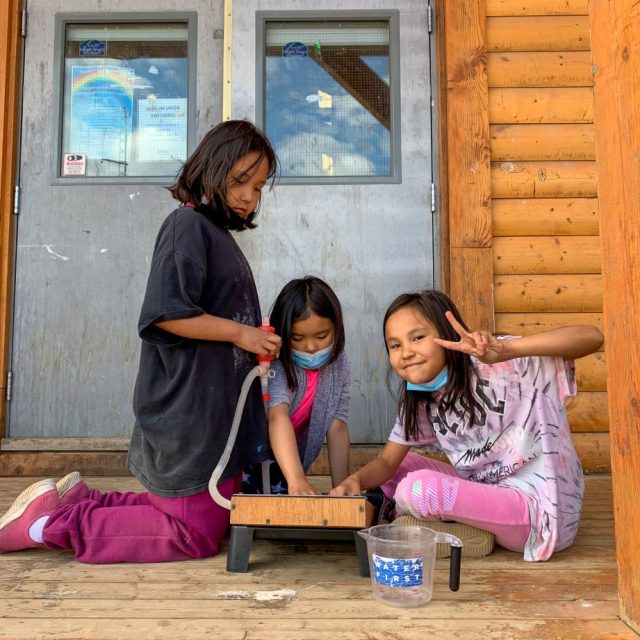
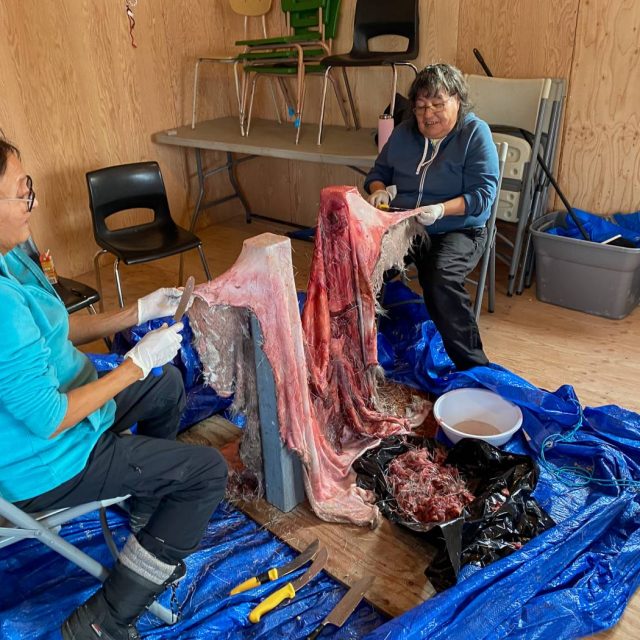
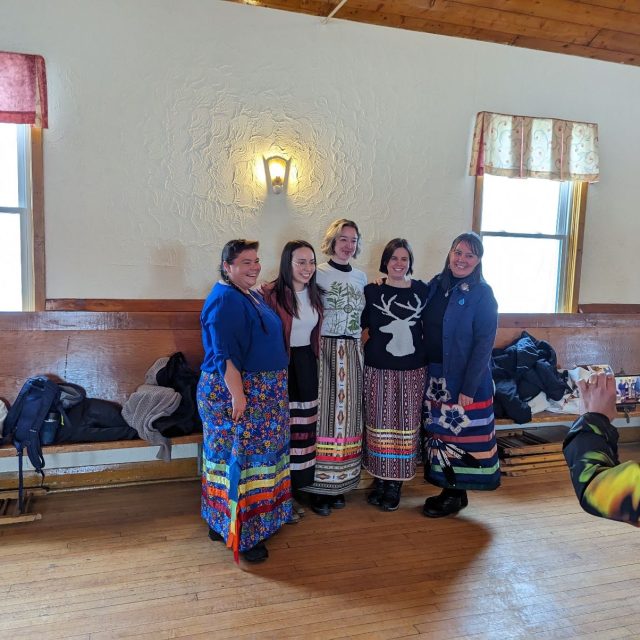
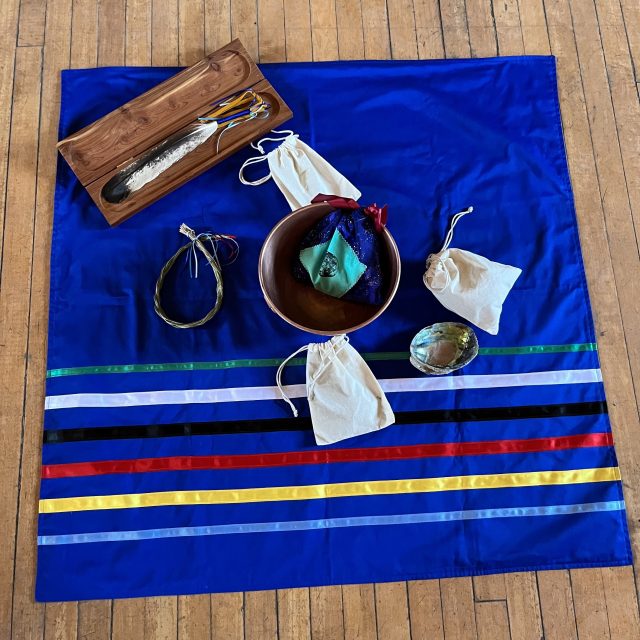
Integrating Traditional Knowledge and community history into programming
Since 2009, Water First has worked with more than 70 Indigenous communities on a variety of programs relating to drinking water and environmental water projects, and water science workshops for youth.
Reciprocal learning is part of who we are as an organization. We bring all we know to the table when we work on a project, and we come with open minds and actively seek to learn more.
The start of any project includes consultations with community partners about where we can integrate Traditional Knowledge and community history into our programming. This approach requires us to listen and learn.
For Alex Lynch, Senior Manager of Environmental Water, learning is also a part of justice. He says, “We have a responsibility to listen to Indigenous Peoples and reflect on how the history of this country has been told to date. We must learn how to rewrite the history of this country so the true story of Turtle Island can be heard and understood – so we can collectively work towards meaningful and sustainable change.“
Language as a carrier of history and identity
Water First is learning about the importance of language as a carrier of history and identity. Did you know there are more than 70 Indigenous languages being spoken across Canada? However, since colonization many languages have been lost and more are at risk of being lost. Indigenous communities and educators are taking action to revitalize and safeguard languages for future generations.
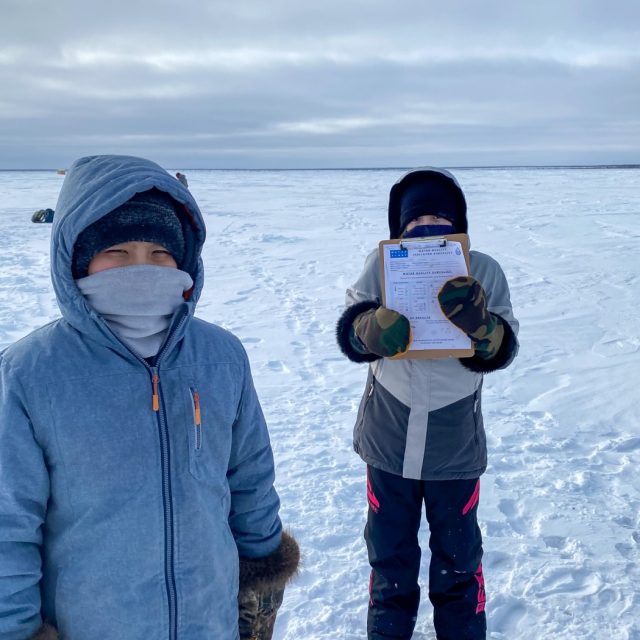
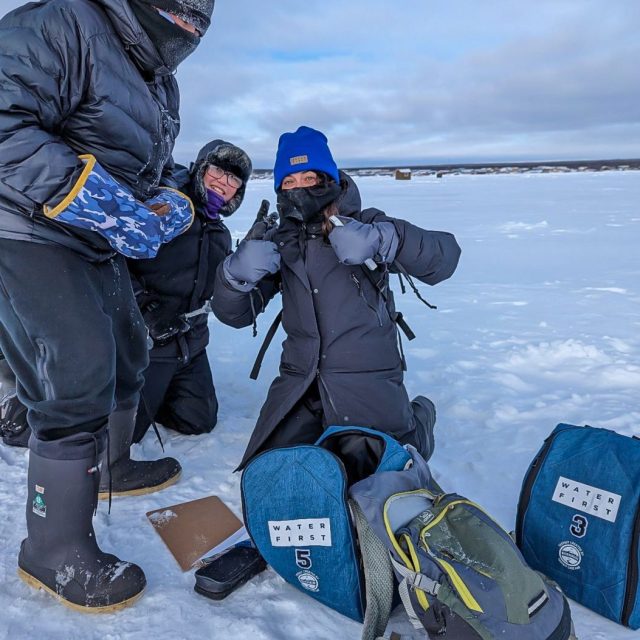
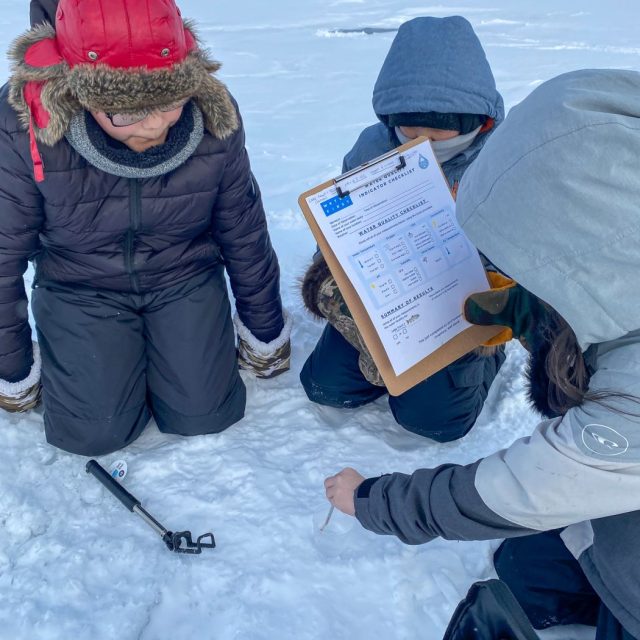
In March, Water First’s Schools Program visited Délı̨nę in the Northwest Territories to work with students at Ɂehtseo Ayha School. The community’s language, Dene Kede, was a main focus throughout the visit, as the school was wrapping up their Language Celebration Month.
Catherine, Water First’s Indigenous School Engagement Coordinator, said, “We had conversations with the language teacher about some initiatives and strategies the community is doing for language and cultural sharing amongst the youth population. They shared that they are making positive strides towards growing their traditional language with youth and piloting a kindergarten immersion program.”
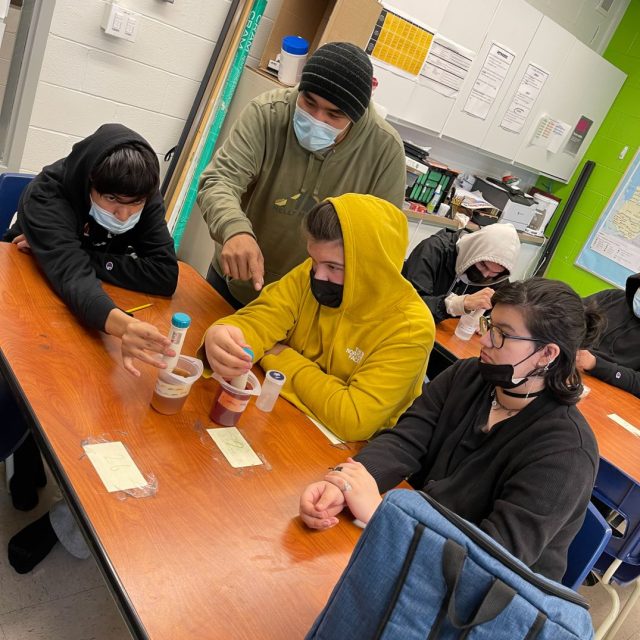
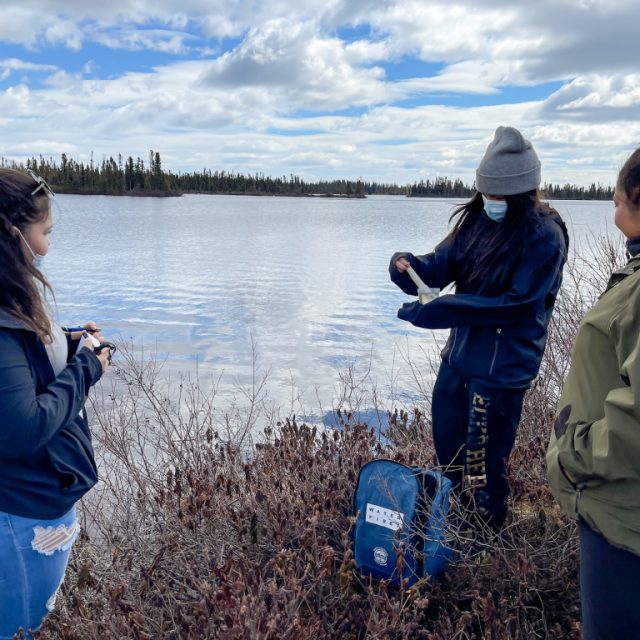
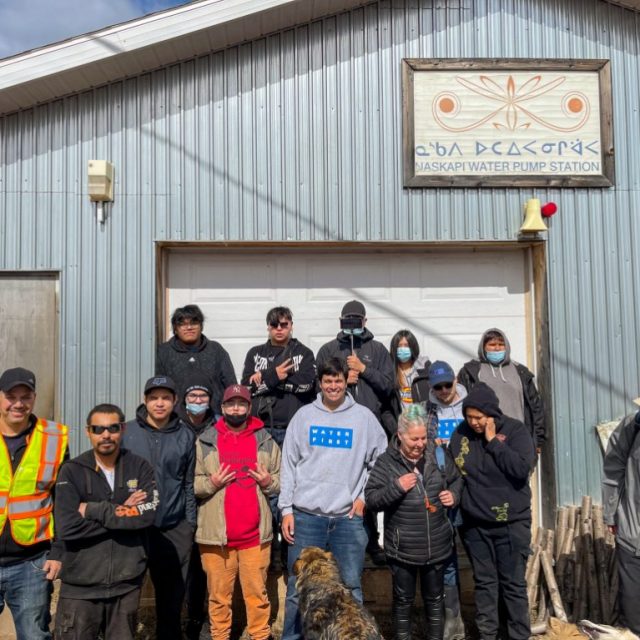
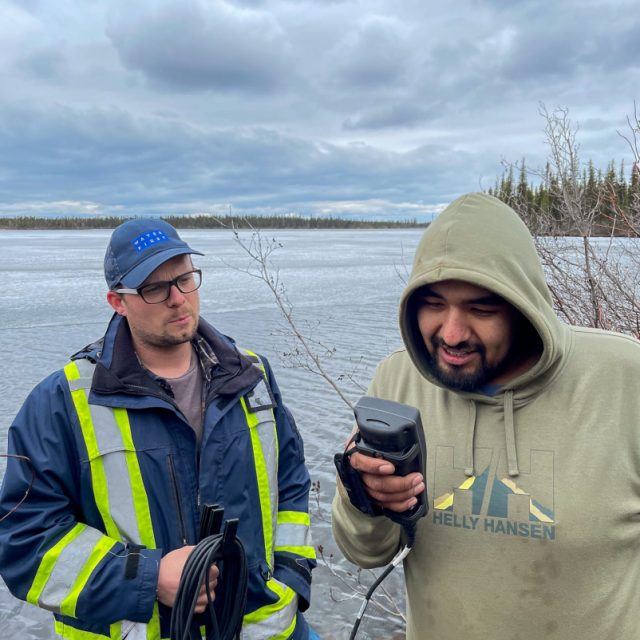
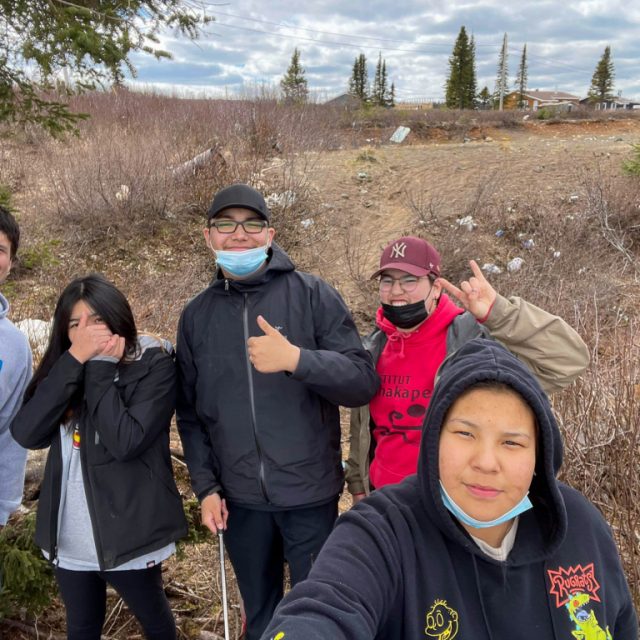
Another example of incorporating local language into programming can be found when our Schools Program visited Jimmy Sandy Memorial School in the Naskapi Nation of Kawawachikamach last spring. Kabimbetas, a long-standing intern and research associate on several Environmental Water projects in Naskapi Territory, was invited to share his knowledge and experiences with the students. Speaking in the Naskapi language, Kabimbetas explained the concept of a watershed. By hearing the explanation in their own language, the students were able to connect the science to their local context and better understand how watersheds work.
Standing with Two-Spirit people
The term Two-Spirit is used by some Indigenous Peoples with respect to a wide range of sexual and gender identities and ways of being. Historically, Two-Spirit individuals played important, unique roles in their communities and were highly regarded.
Today, many Two-Spirit people face ongoing impacts of colonization, including discrimination, violence, and lack of recognition for their unique experiences and gifts. Despite these challenges, Two-Spirit communities are finding ways to reclaim and celebrate their identities.
Water First is committed to learning more about the history of Two-Spirit people so we can be supportive allies. We stand with those who need support, and add our voice to those who are calling for change.
The learning journey continues
Water First will be continuing our ongoing journey to learn about Indigenous and 2SLGBTQIA+ histories. This June and beyond, we’re committed to staying on our path to learn all we can to be better collaborators, allies, co-conspirators, and people.
Resources
Looking to start or continue your own learning journey? We’ve gathered links to a number of books, films, courses, and other resources here.
